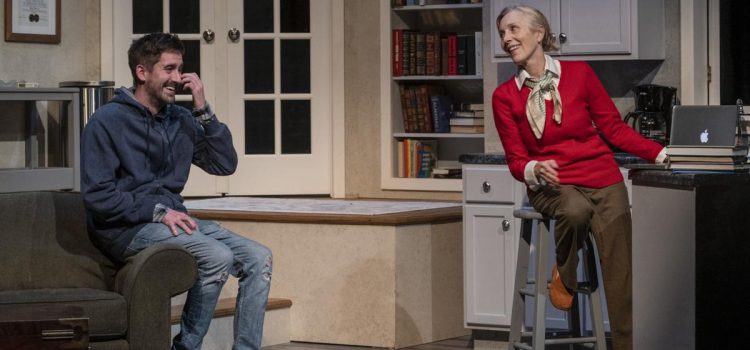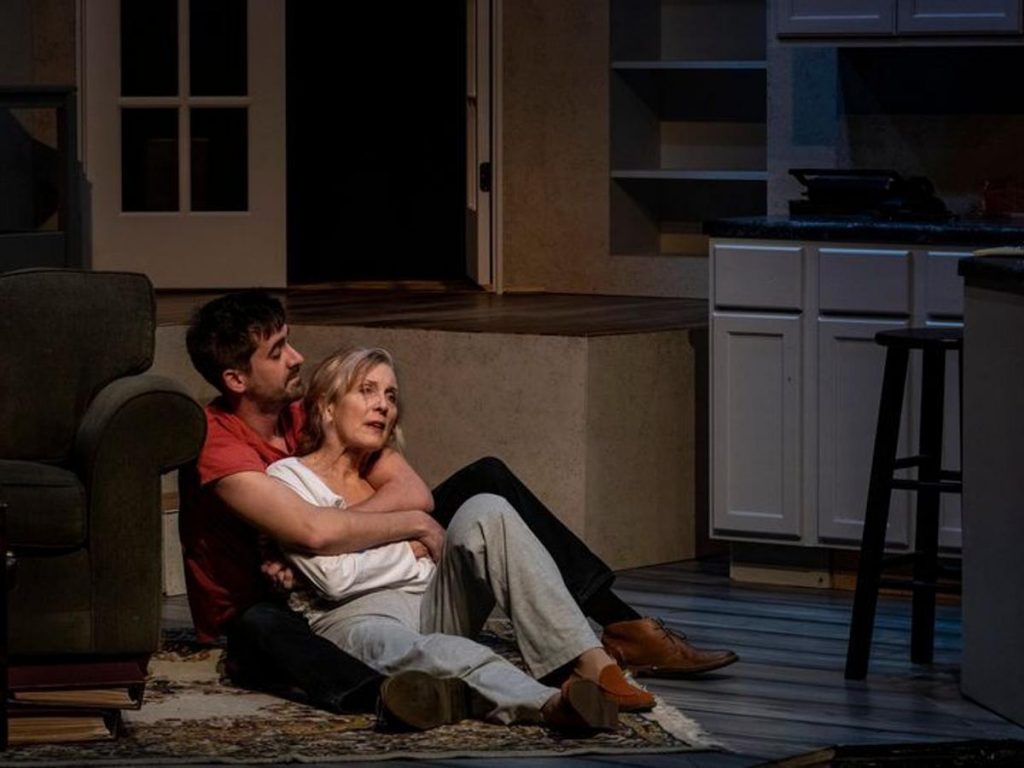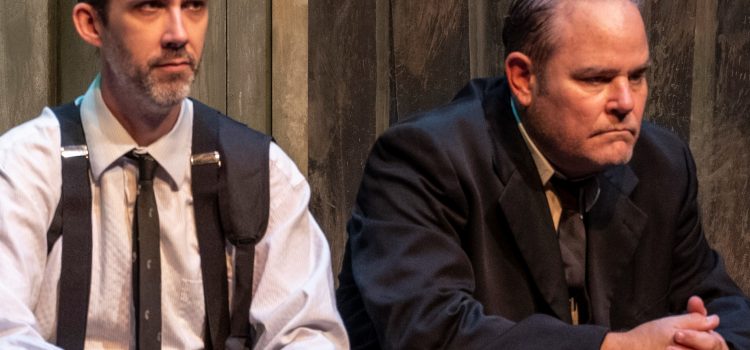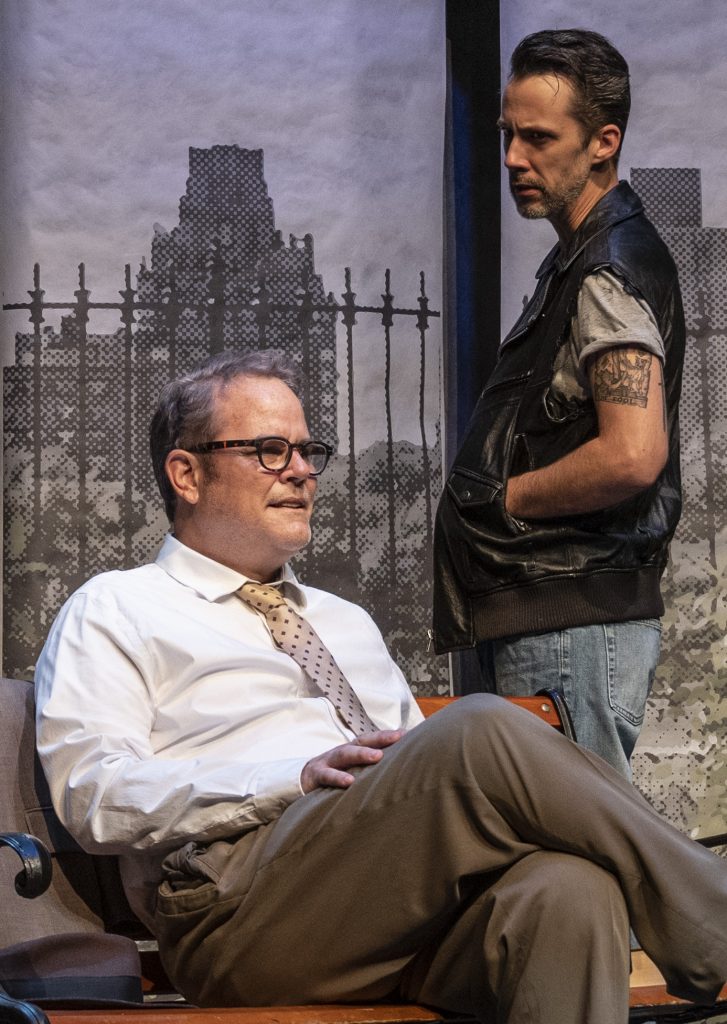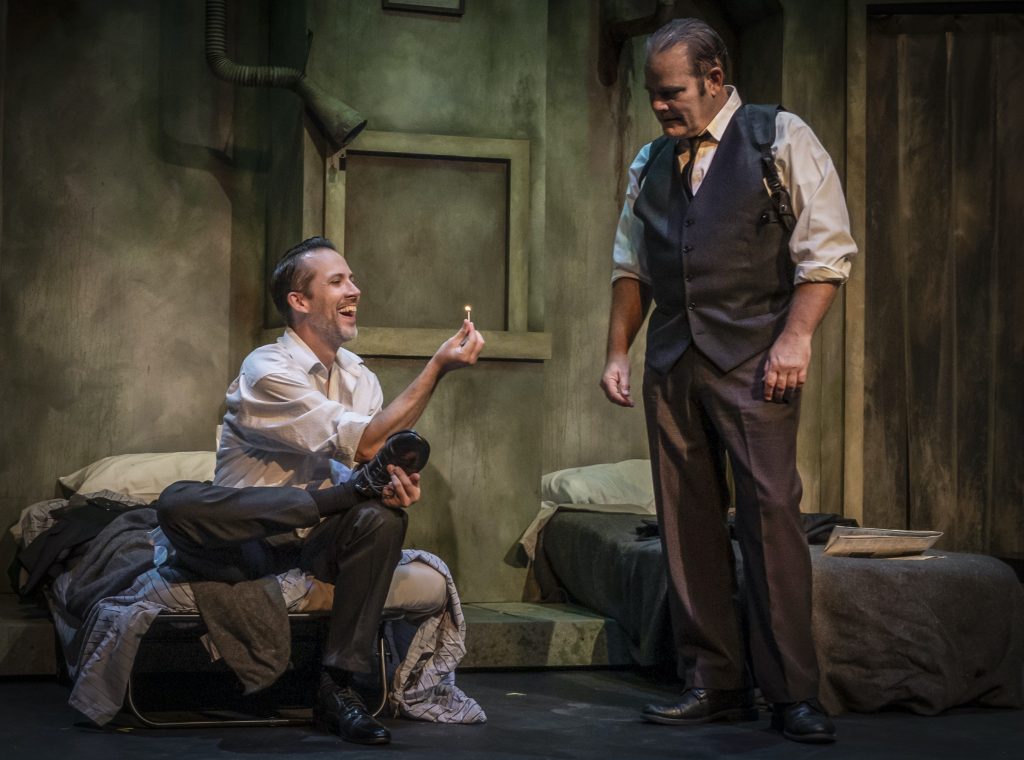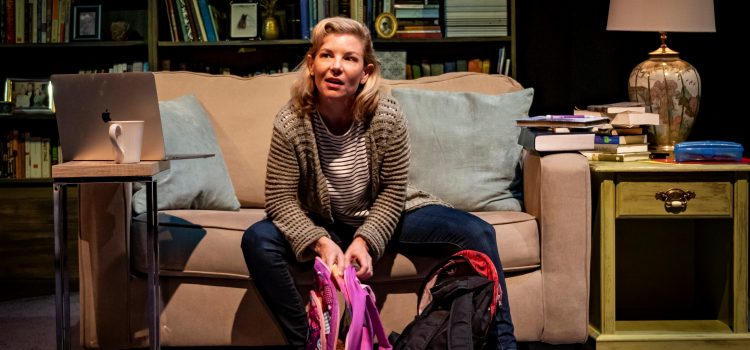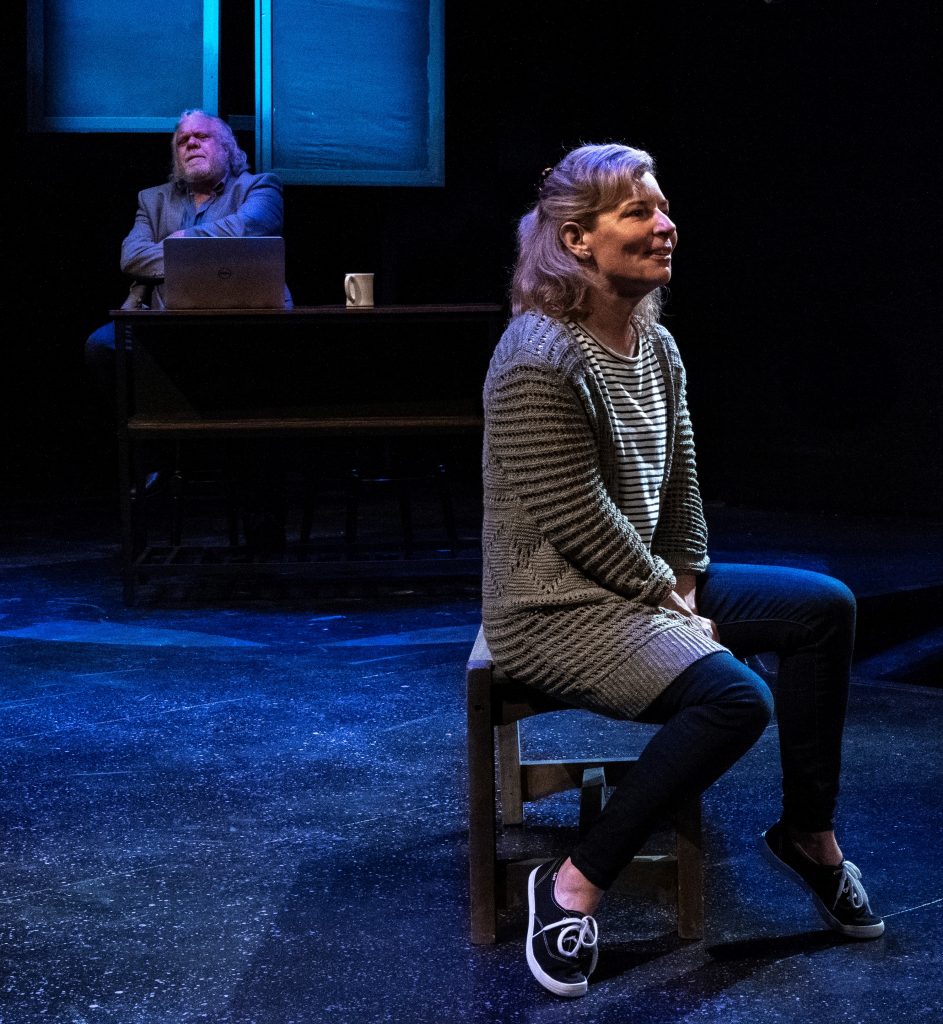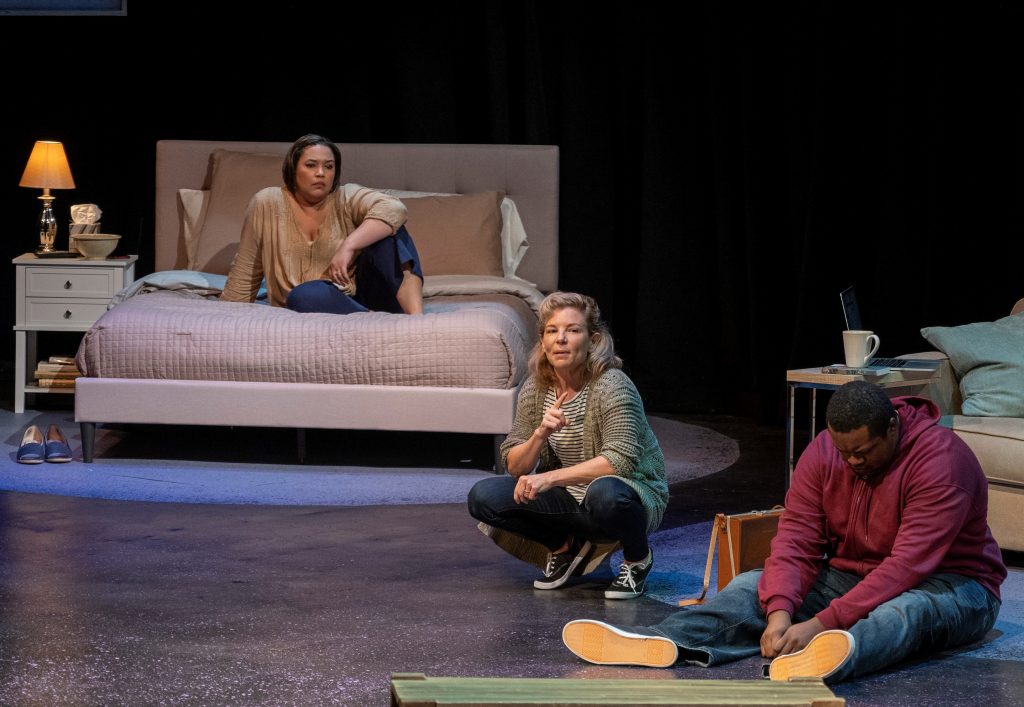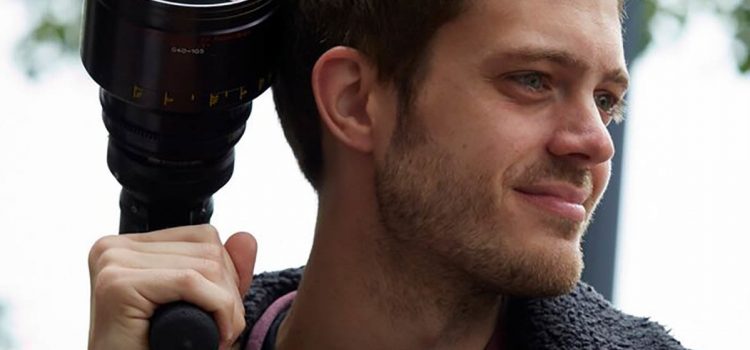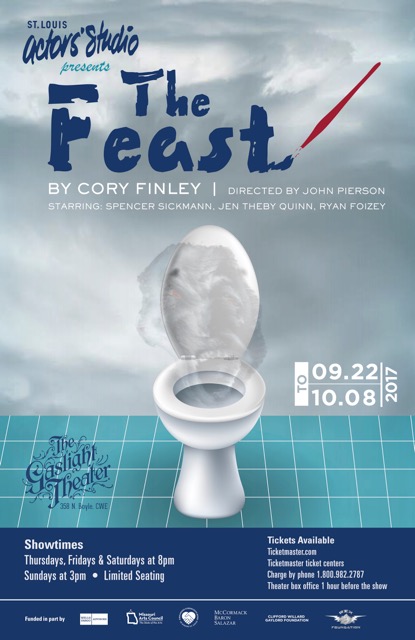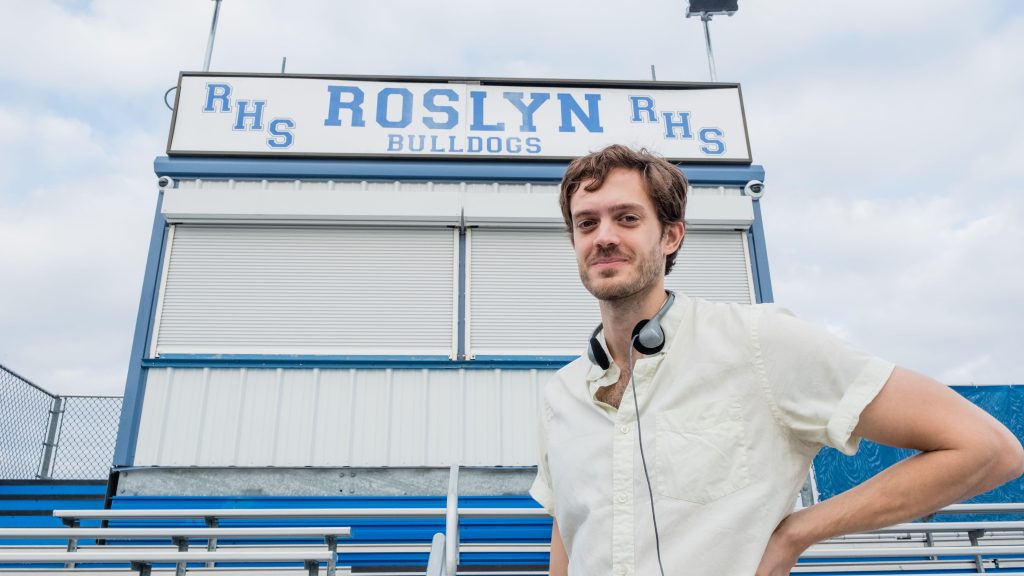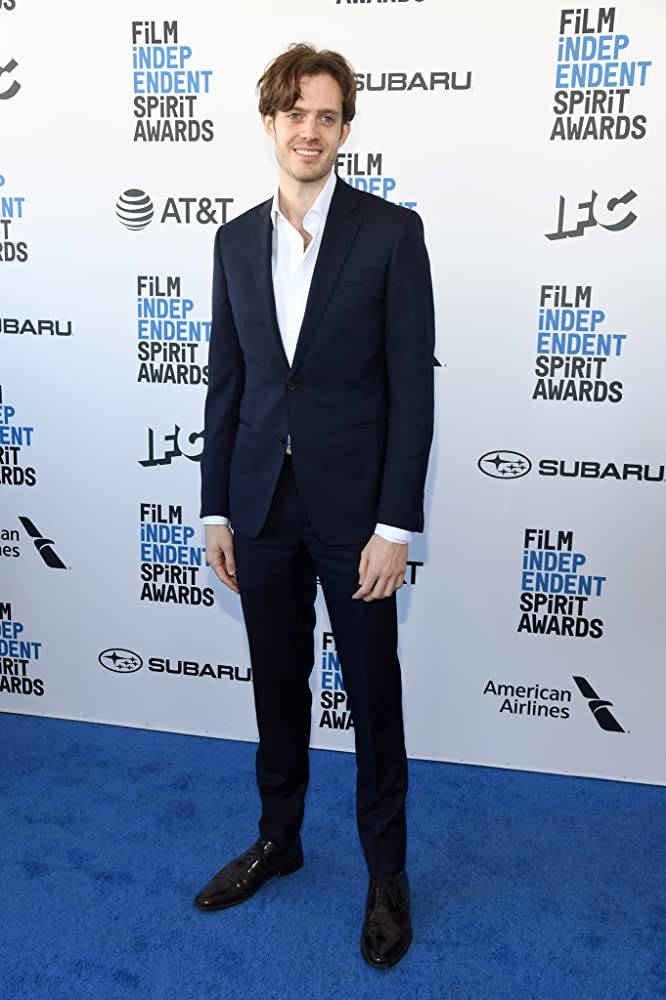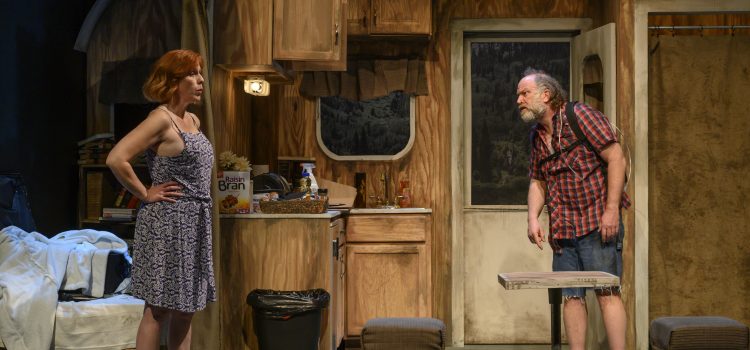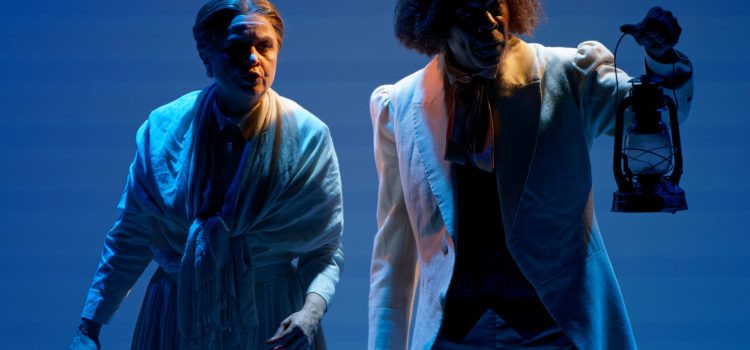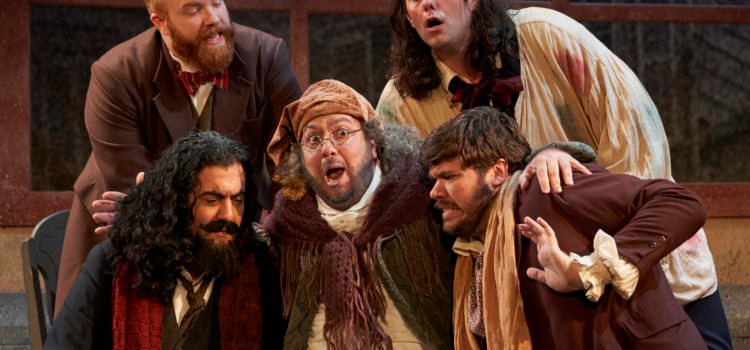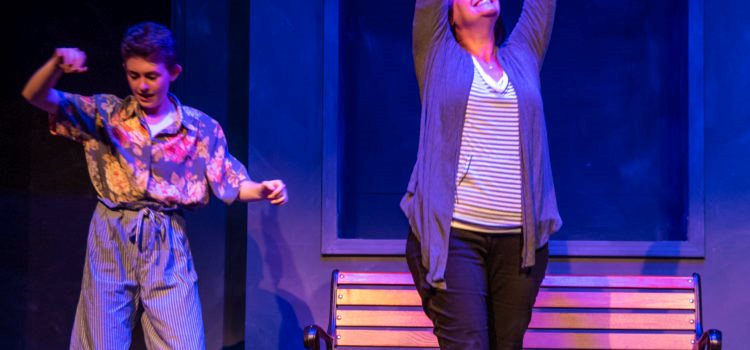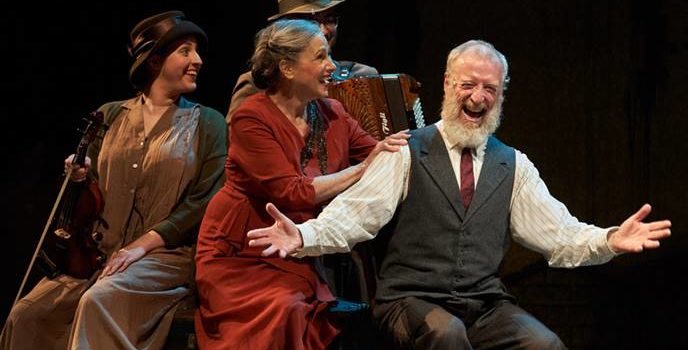.Union Avenue Opera announces three new garden concerts taking place this spring.
This summer, Union Avenue Opera will make its highly anticipated return to its home stage within the historic Union Avenue Christian Church at 733 N. Union Blvd, just north of the intersection of Union and Delmar Boulevards.
Known for its commitment to presenting operas in their original language, Union Avenue Opera will offer a three opera festival season opening with Tchaikovsky’s masterpiece, Eugene Onegin (July 8, 9, 15, 16) which last appeared on the UAO stage in 2003 to great critical acclaim. The season will also see the return of Verdi’s riotous Italian romp Falstaff (July 29, 30, August 5, 6) which the company last produced in 2005. Rounding out the 2022 season will be the UAO debut of Stephen Sondheim and Hugh Wheeler’s charming A Little Night Music (August 19, 20, 26, 27).
“Moving back to our home stage after these harrowing two years away is a joyful outcome to the uncertainty we have faced during this pandemic” said UAO Founder and Artistic Director Scott Schoonover. “Our first two productions are personal and audience favorites from our 28 years of producing opera – Tchaikovsky’s Eugene Onegin and Verdi’s Falstaff. These new, vivacious productions welcome back to our stage many returning artists and several debut singers. Director Octavio Cardenas will make his UAO debut with Eugene Onegin bringing his own special brand of visceral, physical directing to the UAO stage. Jon Truitt returns to direct Falstaff (Jon’s favorite
opera) with his proven comedic style, and Maestro Stephen Hargreaves will return to the UAO pit.”
“Our third production is a company and composer debut with Stephen Sondheim’s A Little Night Music. I’ve wanted to bring this show to UAO for many years and am so thrilled it is finally happening!” said Schoonover. “Annamaria Pileggi will return to direct this stellar cast headlined by St. Louis’ own Debby Lennon as Desirée. It is a wonderful story with so much memorable music which finishes up a season that certainly offers something for everyone! I know we say often, but this one is truly a season not to be missed – it is chock-full of amazing voices, actors, orchestra and stage technicians eager to get back to great storytelling on the intimate UAO stage.”
Single tickets range from $35 to $55 and are available at unionavenueopera.org or by calling 314-361-2881. Discounts are available for Seniors (65+), Military/Educator, and Young Audiences (under 18). All performances start at 8:00PM and free parking is available in the lots behind the venue and overflow parking is available on the street.

Pytor Ilyich Tchaikovsky’s: EUGENE ONEGIN
July 8, 9, 15, 16 at 8:00PM
Presented in Russian with projected English supertitles
Conducted by Scott Schoonover
Directed by Octavio Cardenas
Libretto by Konstantin Shilovsky and Pytor Ilyich Tchaikovsky
A cautionary tale of what was, what was not, and what could have been.
Tatyana, a lovesick girl from the countryside, declares her love for Onegin and finds herself spurned by the disenchanted aristocrat. Onegin, indifferent to the feelings of others, disregards Tatyana’s advances to pursue Olga, his friend Lensky’s betrothed. A duel commences and Onegin finds himself victorious albeit deeply tormented. He returns years later to find Tatyana happily married to Prince Gremin. Struck by her beauty, Onegin declares his love
for her only to find himself face to face with the folly of his naïveté. Eugene Onegin is a sophisticated and melancholy masterpiece by one of classical music’s most universally beloved composers. Tchaikovsky’s lush melodies are enhanced by the opera’s unique folk tunes, infectious waltzes, and passion-soaked arias bringing to
life Alexander Pushkin’s verse novel like never before.
Under the baton of Artistic Director Scott Schoonover, Robert Garner (Nabucco, Nabucco) and William Davenport (Hoffmann, Les contes d’Hoffmann) will return to UAO in their role debuts as Onegin and Lensky respectively. No stranger to the role of Tatyana, Zoya Gramagin will make her UAO debut alongside Andrew W. Potter as Prince Gremin. Melody Wilson (Fenena, Nabucco and Mrs. Miller, Doubt) will return as Olga along with local artists Debbie Stinson as Madama Larina, Victoria Carmichael as Filippyevna, Marc Schapman as Triquet, and Benjamin Worley as Zaretsky. This will be acclaimed stage director Octavio Carendas’ UAO directorial debut. Patrick Huber will provide scenic and lighting design with costume design by Teresa Doggett.
Eugene Onegin – Robert Garner
Tatyana – Zoya Gramagin*
Lensky – William Davenport
Olga – Melody Wilson
Filippyevna – Victoria Carmichael
Madame Larina – Debbie Stinson
Prince Gremin – Andrew W. Potter*
Monsieur Triquet – Marc Schapman
Zaretsky – Benjamin Worley
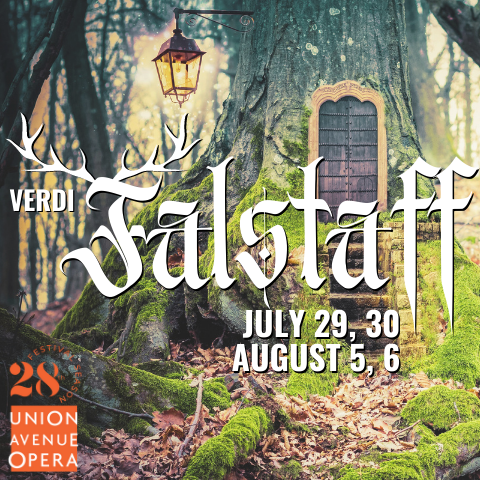
Giuseppe Verdi’s: FALSTAFF
July 29, 30, August 5, 6 at 8:00PM
Presented in Italian with projected English supertitles
Conducted by Stephen Hargreaves
Directed by Jon Truitt
Libretto by Arrigo Boito
Drink. Cheat. Scheme. Repeat. Just don’t get caught unaware…
Old, lecherous, and down on his luck, Sir John Falstaff can’t resist the ladies. The fool hatches a plan to reverse his ill-fortune and sets his sights on not one, but two married women. Sharper than they look, Alice and Meg discover the odious Falstaff’s plan to unceremoniously seduce them and trick them out of their fortunes. The women band together and with the help of Nannetta and Dame Quickly, they concoct a scheme to teach him a lesson he’ll never forget and to put him in his place once and for all. Add in a jealous husband, a pair of young lovers, and a touch of the supernatural and what ensues is a sophisticated comedy filled with failed plans and botched disguises. Verdi’s riotous romp Falstaff bubbles with irrepressible wit and charm in this adaptation of Shakespeare’s The Merry Wives of Windsor.
On the heels of last summer’s company debut, Robert Mellon (Figaro, Il barbiere di Siviglia) will lead the cast of returning artists as Sir John Falstaff. No stranger to the UAO stage Brooklyn Snow (the Heroines, Les contes d’Hoffmann, and Cunegonde, Candide) will be reunited with her Candide co-star, Jesse Darden (Candide) as the two young lovers, Nannetta and Fenton. St. Louis-based husband and wife duo Jacob Lassetter and Karen Kanakis will portray Ford and his wife Alice for the production as Janara Kellerman (Rosina, Il barbiere di Siviglia) returns as Dame Quickly, and Melody Wilson will again be seen on the UAO stage, this time in her role debut as Meg Page. A trio of St. Louis based artists round out the cast with Clark Sturdevant as Bardolfo, Mark Freiman as Pistola, and Anthony Heinemann as Dr. Caius. Stephen Hargreaves conducts while Jon Truitt directs. Lex Van Bloomestein’s set designs and Teresa Doggett’s costume designs will be enhanced by Patrick Huber’s lighting design.
Sir John Falstaff – Robert Mellon
Alice Ford – Karen Kanakis
Ford – Jacob Lassetter
Nanetta – Brooklyn Snow
Fenton – Jesse Darden
Dame Quickly – Janara Kellerman
Meg Page – Melody Wilson
Bardolfo – Clark Sturdevant
Pistola – Mark Freiman
Dr. Caius – Anthony Heinemann
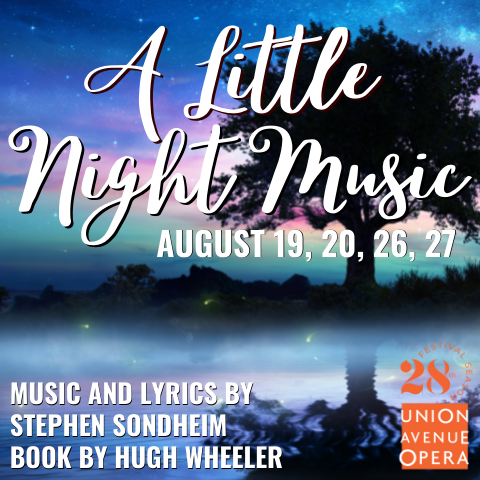
Stephen Sondheim’s: A LITTLE NIGHT MUSIC
August 19, 20, 26, 27 at 8:00PM
Presented in English with projected English supertitles
Conducted by Scott Schoonover
Directed by Annamaria Pileggi
Music and Lyrics by Stephen Sondheim
Book by Hugh Wheeler
Orchestrations by Jonathan Tunick
Suggested by a Film by Ingmar Bergman
Originally Produced and Directed on Broadway by Harold Prince
Lovers reunite, passions reignite, and new romance blossoms in the magic of music on a mid-summer’s night.
A Little Night Music explores the tangled web of affairs centered around the glamorous actress Desirée Armfeldt and the two married men who love her: a lawyer by the name of Frederik Egerman and Count Carl-Magnus Malcom.
Both men—as well as their jealous wives—agree to join Desirée at her family’s estate for a scandalous “Weekend in the Country” under the watchful eyes of the wry family matriarch and harmonizing Greek chorus. With music and lyrics by Stephen Sondheim and book by Hugh Wheeler, it is no wonder A Little Night Music won the Tony Award for Best Musical. From the romance of the night waltzes to the hauntingly beautiful “Send in the Clowns,” Sondheim’s sweeping score is infused with humor and warmth weaving together musical theatre and operetta seamlessly in this tantalizing tale.
Debby Lennon (Mrs. Mullin, Carousel) returns to the UAO stage to lead this stunning cast as Desirée Armfeldt under the direction of Annamaria Pileggi, and Scott Schoonover conducts. Also returning to the UAO stage are Peter Kendall Clark (Older Thompson, Glory Denied) and Brooklyn Snow, who makes her second appearances of the season, as the newly married Frederick and Anne Egerman. Eric J. McConnell makes his UAO stage debut as Count Carl-Magnus Malcolm and Leann Schuering (Josephine, H.M.S. Pinafore) as his wife Charlotte. Local actor Teresa Doggett, best known for her work as UAO’s costume designer for the past fifteen seasons, makes her UAO stage debut as the matriarch Madame Armfeldt alongside Amy Maude Helfer as the restless maid Petra and Arielle Pedersen as the young Fredrika. A bevy of St. Louis talent round out the cast including James Stevens as Henrik Egerman, Jordan Wolk as the butler Frid, and Grace Yukiko Fisher, Gina Malone, Sarah Price, Joel Rogier, and Philip Touchette as the “Liebeslieders”. C. Otis Sweezey will provide scenic design for A Little Night Music along with costume design by Teresa Doggett and lighting design by Patrick Huber.
Desirée Armfeldt – Debby Lennon
Frederick Egerman – Peter Kendall Clark
Count Carl-Magnus Malcolm – Eric J. McConnell*
Charlotte Malcolm – Leann Schuering
Madame Armfeldt – Teresa Doggett*
Anne Egerman – Brooklyn Snow
Henrik Egerman – James Stevens
Petra – Amy Maude Helfer*
Fredrika – Arielle Pedersen*
Mrs. Nordstrom – Gina Malone
Mrs. Anderssen – Grace Yukiko Fisher
Mrs. Segstrom – Sarah Price*
Mr. Erlanson – Philip Touchette
Mr. Lindquist – Joel Rogier
Frid – Jordan Wolk
A Little Night Music is presented through special arrangement with Music Theatre International (MTI). All authorized
performance materials are also supplied by MTI. www.mtishows.com
*UAO stage debut
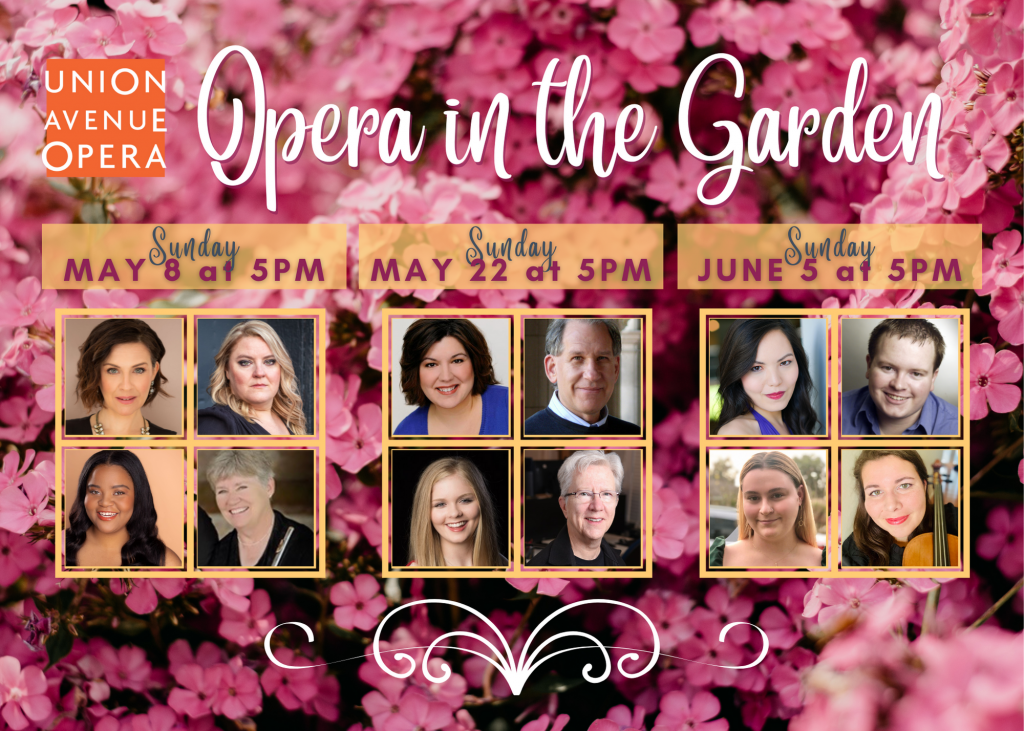
Opera in the Garden
In anticipation of the season, UAO will bring classic opera front and center in its 2022 Opera in the Garden – Garden Concert Series Fundraiser this spring. Launched in 2018, as a House Concert Series, UAO moved the concerts outdoor in the fall of 2020 for the safety of its artists and patrons and were some of the first, live, operatic performances held in St. Louis during the pandemic. Each concert will feature two UAO artists from the upcoming season performing an eclectic and entertaining selection of arias, art songs and musical theatre favorites, and will showcase a scholarship winner from UAO’s 2022 CRESCENDO! program along with a guest instrumentalist from UAO’s talented opera orchestra.
Sunday, May 8 at 5:00PM
Our opening concert will take place on Mother’s Day and headlined by two singing moms – Gina Malone and Danielle Yilmaz – celebrating the day with us with some wonderful music and fun. Guest artists Raven Brooks, soprano, from Blackburn College and UAO principal flutist, Ann Dolan will join pianist Sandra Geary for this perfect Mother’s Day afternoon. The backdrop for our first concert is the beautiful lawn of the 1959 home of CK Siu and Shannon Hart which sits on what used to be the Krause farm in Ladue.
Sunday, May 22 at 5:00PM
Our second concert takes us to the grounds of the former Rand Mansion, now the home of University City mayor, Terry Crow. Artists Sarah Price, Mark Freiman and Nancy Mayo will lead this concert, along with guest soprano, Erica Ancell from Webster University and UAO principal horn player, Nancy Schick, who will team up with Ms. Price and Ms. Mayo for a not-to-be-missed special performance of Schubert’s Auf dem Strom D. 943.
Sunday, June 5 at 5:00PM
The 2022 Garden Concert Series concludes with a return to the beautiful flower-filled garden of the University City home of Richard and Mary Ann Shaw. Grace Yukiko Fisher, Philip Touchette and Nancy Mayo will entertain us with opera and musical theatre fun, and guest artists Madalyn Tomkins, soprano, from Webster University, and Carolina Neves, violinist will round out this beautiful afternoon.
Fundraiser tickets are $50 for individuals or $100 for Patron Seating which includes the best reserved seats and a $50 tax-deductible donation to UAO. Tickets are on sale now at www.unionavenueopera.org and must be ordered in advance (no door sales).
About Union Avenue Opera
UAO was founded in 1994 to bring affordable, professional, original-language opera t St. Louis, a mission the company continues to pursue to this day. UAO is committed to hiring the most talented artists, directors, designers and technicians both locally and from across the United States. UAO provides promising singers the first steppingstone of their professional career. The company celebrated its 25th Anniversary Season in 2019 and offers vibrant and affordable opera experiences in original languages to audiences who reflect the breadth and diversity of the St. Louis region. UAO is a publicly supported 501(c)(3) nonprofit organization registered in
Missouri.
Financial assistance for the 2022 Festival Season has been provided by the Missouri Arts Council, a state agency, and with support from the Regional Arts Commission

Lynn (Zipfel) Venhaus has had a continuous byline in St. Louis metro region publications since 1978. She writes features and news for Belleville News-Democrat and contributes to St. Louis magazine and other publications.
She is a Rotten Tomatoes-approved film critic, currently reviews films for Webster-Kirkwood Times and KTRS Radio, covers entertainment for PopLifeSTL.com and co-hosts podcast PopLifeSTL.com…Presents.
She is a member of Critics Choice Association, where she serves on the women’s and marketing committees; Alliance of Women Film Journalists; and on the board of the St. Louis Film Critics Association. She is a founding and board member of the St. Louis Theater Circle.
She is retired from teaching journalism/media as an adjunct college instructor.


